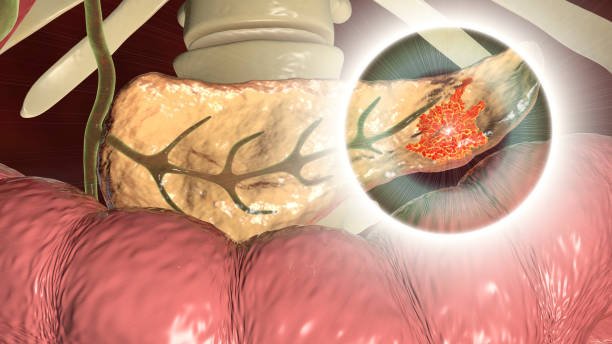
Is There a Relationship Between Diabetes and Pancreatic Cancer? 4 High-risk Groups to Pay Attention to
Pancreatic cancer has no obvious symptoms in its early stages and is very difficult to detect. It is also one of the cancers with the worst prognosis. Therefore, it is also known as the “King of Cancers”. It is worth noting that if you are diagnosed with diabetes after you are over 50 years old, you will be more likely to suffer from pancreatic cancer. The chance of visceral cancer will also increase significantly. What is the connection between pancreatic cancer and diabetes? Who are the high-risk groups? Let this article explain it to you one by one.
What is pancreatic cancer?
The pancreas is located in the retroperitoneal cavity behind the spine, and is small in size and can easily be overlooked. However, the pancreas plays a very important role in the human body. Because the pancreas has both endocrine and exocrine functions, it is also known as the “Master of Internal Medicine”.
The pancreas can be divided into head, body and tail. When a malignant tumor grows on the pancreas, it is called pancreatic cancer. There are different symptoms depending on the location of the tumor.
Pancreatic cancer in the early stages will not have obvious symptoms, but when the cancer cells continue to expand, symptoms such as upper abdominal pain, jaundice, and weight loss will appear. If the cancer cells grow in the head of the pancreas, the cancer cells may invade the bile duct and bile cannot be secreted smoothly. When the cancer cells reach the duodenum, it will cause symptoms such as yellowing of the cornea, itchy skin, and fever. If the cancer cells grow in the body or tail, symptoms such as upper abdominal pain and back pain will occur. The patient must lean forward for relief. pain.
Pancreatic cancer can easily spread to other organs. Many patients think that surgery means the condition is improving. However, in fact, the cancer cells have already metastasized to other organs, resulting in a very poor prognosis and a high chance of recurrence.

Diabetes and pancreatic cancer relationship
The pancreas secretes digestive enzymes to digest sugars, proteins and fats, and also secretes insulin to regulate blood sugar and metabolism. Insulin converts starch into glucose to provide the body with the energy it needs; however, imbalanced insulin secretion will continue to increase blood sugar in the body, leading to diabetes in the long term and a series of complications, such as nephropathy, blindness, or cardiovascular disease. .
Who are the high-risk groups?
The causative factors of pancreatic cancer are still unclear, but the following high-risk groups should pay special attention to:
- Genetics: If there is a family history of pancreatitis, the chance of developing pancreatic cancer is 30 to 40 times higher.
- Smoking: Family inheritance combined with smoking increases the risk of pancreatic cancer by 100 times.
- Diabetes: People over 50 years old who are diagnosed with diabetes need to pay special attention. The diabetes at this time may not be a blood sugar problem, but diabetes caused by pancreatic cancer.
Pay attention to blood sugar levels to detect pancreatic cancer early
How to prevent pancreatic cancer? In addition to maintaining good living habits, avoiding smoking, drinking, and maintaining a standard weight, the most important thing is to pay attention to blood sugar levels. People who have no family history of diabetes and are diagnosed with diabetes after the age of 50 need special attention. If you have not been diagnosed with diabetes, but your blood sugar level always rises for no reason, you should also ask a doctor to determine whether it is related to pancreatic cancer.












